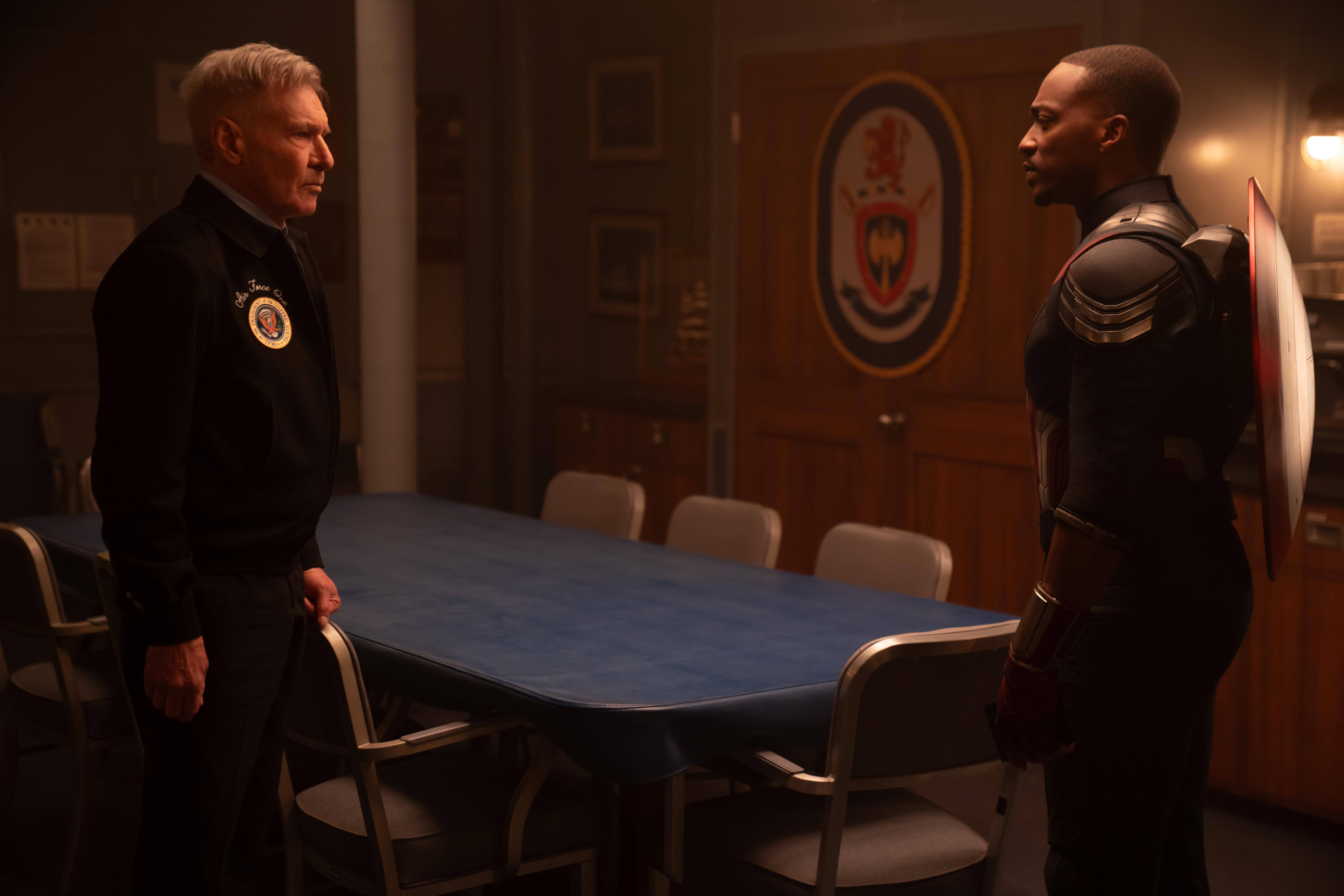In 1600, the setting of FX’s adaptation of James Clavell’s historical epic Shōgun, Japan was all but closed off to most Western nations. The arrival of scruffy Englishman John Blackthorne (Cosmo Jarvis), in all his unwashed glory, qualifies as an event of the highest degree; Blackthorne is a “barbarian” who upsets the already delicate balance of scheming roiling in Osaka, not to mention his ship full of guns and cannons. But in its first two episodes, Shōgun takes this scenario further, reminding us with a single scene that this is a place we might be familiar with, but not a place any of us really know. In just seven minutes, Shōgun expands the whole world.
[Ed. note: The rest of this post will be discussing Shōgun episode 1 and 2 plot elements in detail. Join us!]
It all happens when Blackthorne is brought before Lord Yoshii Toranaga (Hiroyuki Sanada) for the second time. What starts as a fairly straightforward ask for Blackthorne — to draw the world as he knows it for the curious young heir to the throne — quickly turns shocking. As Blackthorne states very clearly, Japan’s Portuguese “allies” (one of few Western groups allowed in the country at the time) have a secret base in Macau, from which they’ve been smuggling guns into the country and possibly aiding the uprising against the former ruler. What’s more, Portugal has arrogantly carved up the world in concert with the Spanish, allowing each to lay claim to whatever is within their half of the fake borders — with Japan considered the property of the Portuguese.
The key point is in the information, as the murmurs reverberating through the crowd demonstrate. But nothing Blackthorne is saying is going straight to Toranaga, which adds extra layers to the conversation. It’s being filtered first through the translation work of Lady Mariko Toda (Anna Sawai), who is Christian, a close former student of a Portuguese priest, and resistant to Blackthorne as an interloper. Toranaga asks to clarify if the Anjin (Japanese for “pilot”) really said “belongs” when talking about how the Portuguese and the Spanish divided up the world; Mariko clenches when Blackthorne swears on his God that it’s true. It’s a scene that confidently layers competing interests and perspectives, making for good, rich storytelling. There is a mammoth amount of complexity, even just in the sides defined in these first two episodes. There’s a council of regents, and some Protestants, and the Catholics, and those who have sworn fealty, and those who would break it for a price.
:no_upscale()/cdn.vox-cdn.com/uploads/chorus_asset/file/25308547/SHOGUN_102_04243r.jpg)
The scene is fantastic TV drama, with its maze of characters — each with their own motivations and schemes — all converging in this garden for a moment. It’s also top-tier narrative world building: Shōgun approaches its version of Japan almost like a fantasy show would approach its unique world. It does this not to other-ize Japan, but to ease a perhaps unfamiliar audience into a complicated place and time, and to help us as viewers feel immersed in the period’s culture. This is a nation, a period that was once real and feels remarkably real because it is lived in. While Blackthorne may be the show’s initial protagonist, this scene lays out for us how important it is that we be able to view the world through the eyes of the Japanese characters too (something Clavell’s original novel never managed). Which is all to say that the world of Shōgun, in these first two episodes, is also being translated to us, filtered through what we know — of Japan and its history, of the novel, and of the miniseries itself — to make something true. And which is why it’s crucial to see the way Shōgun is clear about who the story is really centering on.
The scene in the courtyard pivots around the Anjin and his map; it’s the perfect way to bring everyone up to speed, and to collapse so many frictions into a clear and propulsive narrative thrust. We get a sense of Blackthorne’s savvy; we understand who he is and how he plans to move through the world. But even though he’s ostensibly there to demonstrate this to the young lord-to-be, he’s actually got an audience of one: Lord Toranaga.
While, earlier in the episode, Blackthorne’s fellow inmate says this world is too foreign to comprehend, Blackthorne understands Toranaga’s ethos and, more crucially, understands that he is the real power here. It’s a magnitude Shōgun recognizes acutely; the episode opens with a long introduction to Toranaga as the most trusted advisor of the former ruler, a formidable warrior and thinker, and someone who is wise to (and wiser than) the scheming around him. He is deeply shrewd and intelligent, and, luckily for the Anjin, already on a similar wavelength to Blackthorne. The first time they meet, before the map, the translations (and the translators) fall away, leaving the camera close up and centered on both. We know they are still being translated, but the message is clear: their link is unobstructed.
:no_upscale()/cdn.vox-cdn.com/uploads/chorus_asset/file/25308546/SHOGUN_101_141310r.jpg)
In a show where so much is done through mediators and subtle gestures, the directness between the two matters a lot. It’s why the somewhat silly final beat of “Servants of Two Masters” makes sense. Even if Blackthorne can’t literally understand the conspiracy being unspooled by Toranaga next to him, he immediately understands something he recognizes and respects: a fellow schemer, and an ambitious man who’s constantly looking for the angle to outsmart his enemies. Shōgun has already made their most direct connection, with just three words from Blackthorne: “Unless I win.”
Toranaga, in response, holds steady, cracking merely a slight smile, concealed almost as a grimaced smirk. The information he learns in the courtyard, the magnitude contained in such a crudely drawn map, is all contained in just the smallest cheat out of how he just might riddle his way out of this political mess. In that moment, Toranaga’s world clicks into place. This is the true promise of Shōgun — not an English interloper, but the Japanese strategist who’s playing the long game, and might just be ready to make his big move. To many around them, it might just look like audacity disguised as confidence; but… game recognize game.
The first two episodes of Shōgun are now streaming on Hulu. New episodes drop on Hulu every Tuesday.






